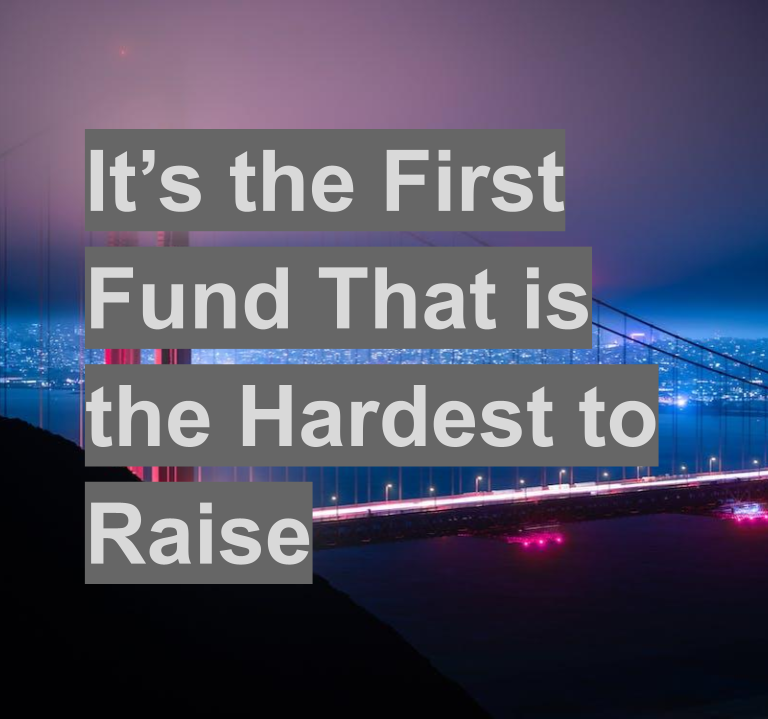It’s the First Fund That is the Hardest to Raise
If you want to be a VC fund manager, it’s the first fund that is the hardest to raise.
Contrary to popular belief, just having money to invest or a background in the finance world is not a prerequisite for raising a VC fund.
Many emerging VCs are:
- Former entrepreneurs or executives at a successful tech company. This is highly desirable; they understand what it takes to achieve entrepreneurial success.
- Well-educated subject matter experts with advanced degrees or experience. This is effective, particularly in fields like biotech or certain areas of deep tech.
- Successful angel investors who worked their way up by networking, making smart bets, and building the credibility needed overtime to raise a large fund.
What’s exciting, even as we face short-term economic challenges, is that talented emerging fund managers have a tremendous opportunity right now. We are experiencing one of the most significant wealth transfers that will occur in human history.
As large pools of wealth move from one generation to another, these new stewards of legacy capital will need the help of emerging fund managers to deploy their capital.
The need for high-performing, emerging VC fund managers will only grow with time.
What I know from my work with emerging fund managers is that the best ones are:
→ Competitive and intrinsically motivated.
→ Patient and take a long-term view.
→ Understands relationships and enjoys building trust.
→ Values the power of capital to power economic growth.
→ Have a sharp, clear, and unique perspective on the ecosystem.
If you’re looking to raise a fund, I applaud you.
The investment community needs new talent with fresh ideas from diverse backgrounds to keep innovation moving forward.
What to expect when raising your first fund?
→ Plan to reach out to at least 500+ limited partners. (Really? Yes.)
→ Give yourself 3 to 6 months just to secure 1st meetings.
→ Raising the full fund will take 12–18 months or longer.
This is going to take some time.
This means the #1 trait required to be successful is:
→ A long-term view.
As an emerging fund manager, you can expect that your LPs will come mostly from family offices. Focus on LPs who also have a long-term outlook on capital. You want them to have at least a 20-year time horizon, and ideally manage $1B+ at a minimum.
Once the institutional LPs commit, they typically commit to three to four funds — this makes future fundraising easier over time. Ultimately, how well you perform as a fund manager is what will be most important when raising a second or third fund.
To many, being a VC sounds glamorous.
At times, it can be.
But being a great venture investor is about patience and having unique insights into not just emerging technology but also the people who can lead a startup to greatness.
